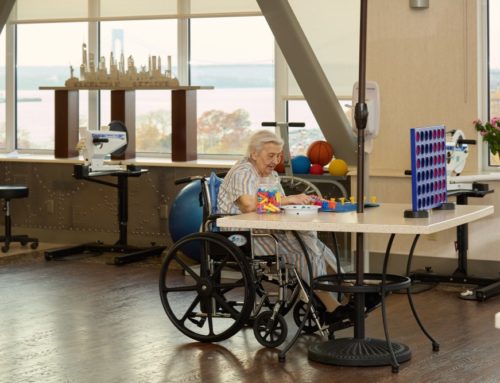The lymphatic system consists of several components working together. As well as aiding immune function, it moves lymphatic fluid, draining it whenever needed. When the lymphatic system is blocked, the fluid doesn’t move as it should, creating complications throughout the body. Though you often can’t prevent such blockages, knowing the cause may help you reduce the risks.
Experts often recommend physical therapy or other exercise programs to improve lymphatic drainage. A trained therapist suggests the best movements for improving drainage and maintaining proper lymphatic system function. A healthy diet of low-sodium foods also reduces inflammation and other symptoms. Knowing what causes blockages may help prevent these issues as well, which we’ll discuss in the following sections.

Blocked Lymphatic System Causes
Though rare, primary lymphedema results from genetically caused malformed lymphatic vessels. Underdeveloped or overgrown vessels may collect fluid instead of distributing it throughout the body. No cure is available for this condition, though treatments are available to slow its progression.
Cancer
A blocked lymphatic system often occurs in those with cancer. All cancer types could cause the condition, though the affected area varies. For instance, cancer in the abdominal or genital area often causes lymphedema in the abdomen and lower body. With head or neck cancer, the condition blocks lymph flow in the throat, neck, chin, or face.
Cancer treatments may also cause lymphatic issues. During surgery, lymph nodes are often removed, lymph fluid flow is disrupted, or infection could occur. The slow healing process could also alter the lymphatic system’s function. Radiation therapy may result in scar tissue that could also cause a blocked lymphatic system.
Infection
Infections are another common cause of lymphatic problems. For instance, lymphadenitis occurs when lymph nodes become infected and inflamed, preventing fluid distribution. Infections affecting other areas could also cause blockage in various areas of the lymphatic system.
Injury
After an injury, the immune system kicks in to repair the damage. Lymphatics play a vital role in this process, absorbing foreign and tissue antigens. These are sent to the lymph nodes, where they’re processed to create cytokines to improve healing. However, the injury could cause inflammation, disrupting lymph flow and resulting in further damage.
Obesity
Yes, obesity can contribute to lymphatic issues, particularly lymphedema, a condition where fluid builds up in the tissues, causing swelling, potentially due to excess fat putting pressure on lymph nodes and vessels, or inflammation affecting lymphatic function.
According to experts, over 36.5% of adults in the United States are obese. Every bodily system is affected, including lymphatic functions. The system can’t clear harmful debris from the body, triggering inflammatory responses. The blocked lymphatic system alters how other organ systems function, worsening obesity-related conditions.
Symptoms
If your lymphatic system is disrupted, several symptoms will alert you to the issue. The most common is swelling in the extremities, including the hands, arms, legs, and feet. Other areas may also become inflamed, depending on the location of the blockage. Some people experience swelling in the face, chest, shoulders, pelvis, and groin.
As the condition develops, the swelling reduces the range of motion in the joints or heaviness in the limbs. Tissue changes, including coloring and texture, are often noted. Sensations may be altered, with some individuals complaining of pain in the affected area. As the inflammation worsens, you may have difficulty fitting into clothing you’ve previously worn.
Resources:
- NORD, March 26, 2024, Primary Lymphedema
https://rarediseases.org/rare-diseases/hereditary-lymphedema/ - National Cancer Institute, Lymphedema
https://www.cancer.gov/about-cancer/treatment/side-effects/lymphedema - Johns Hopkins Medicine, Lymphadenitis
https://www.hopkinsmedicine.org/health/conditions-and-diseases/lymphadenitis - PubMed Central, May-Aug 2012, Chronic lower limb wounds evoke systemic response of the lymphatic (immune) system
https://pmc.ncbi.nlm.nih.gov/articles/PMC3495375/#:~:text=Taken%20together%2C%20blood%20supplies%20wounded,specific%20cytotoxic%20and%20phagocytic%20cells - PubMed Central, Feb. 2017, To be or not to be obese: impact of obesity on lymphatic function
https://pmc.ncbi.nlm.nih.gov/articles/PMC5330919/ - NCBI, April 19, 2023, Lymphedema
https://www.ncbi.nlm.nih.gov/books/NBK537239/
This content comprises informative and educational resources only and can not be considered as a substitute for professional health or medical guidance. Reliance on any information provided in this article is solely at your own risk. If you have any inquiries or apprehensions about your medical condition or health goals, talk with a licensed physician or healthcare provider.






Leave A Comment